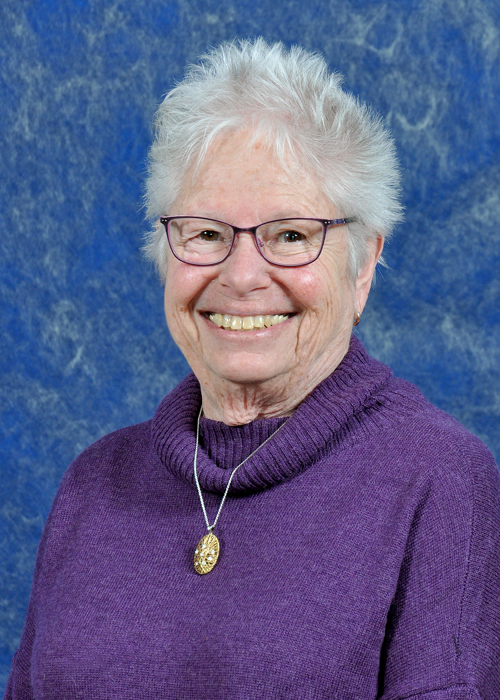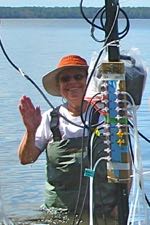Outstanding Faculty Researcher Award
This is an alternating award given every 3 years to a faculty member who has excelled in teaching, research, or advisory service.

This year's winner of the Outstanding Faculty Researcher Award is Dr. Iris Anderson.
Throughout her career at VIMS, Iris Anderson has consistently demonstrated excellence in research. Iris’ research focuses on the biogeochemical processes that regulate the fate of nitrogen and carbon in coastal systems. Her work has advanced from early studies of trace-gas emissions from coastal salt marshes, to studying processes by which nitrogen and carbon cycle through sediments, to approaches for understanding how benthic algae influence nitrogen cycling, to bivalve aquaculture and its effects on nutrient cycling. In more recent years, her research has focused on how phytoplankton blooms impact estuarine metabolism and the role of estuaries and wetlands as sources or sinks of carbon.

As you can see, Iris is truly a “big thinker.” Her work has contributed to important research questions that transcend microbial ecology and biogeochemistry. Her research has addressed basic questions that have advanced ecosystem science in numerous ways, while also being highly relevant to coastal management and society.

Iris was the inaugural recipient of VIMS’ Lifetime Achievement Award for her extraordinary contributions to research and education. She is also highly regarded in the broader scientific community. In 2019, she was the recipient of the Odum Award from the Coastal and Estuarine Research Federation, which recognizes the lifetime achievements of an outstanding estuarine scientist. Iris has served as both Co-Editor in Chief and Reviews Editor of CERF’s flagship publications, Estuaries and Coasts.
Iris’ career has been exemplary, both in terms of advancing the fields of coastal ecology and nutrient biogeochemistry as well as in mentoring students and postdocs. Together, her contributions to the knowledge base and the development of early career scientists have left an indelible mark on estuarine science. She is eminently qualified and highly deserving of the VIMS Outstanding Researcher Award.

